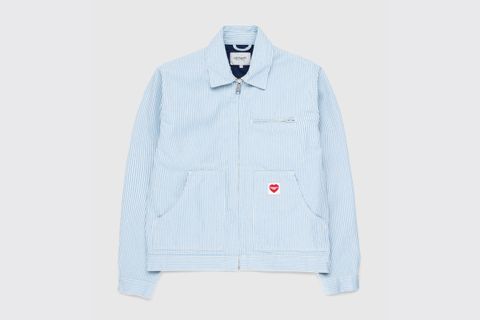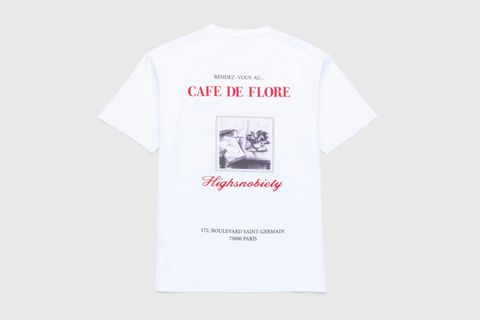SHEIN Faces the RICO Act, Typically Reserved For the Mafia — Why?
There are plenty of reasons to hate SHEIN but not a lot anyone can do about SHEIN. SHEIN is inevitable, like death and taxes. However, a new lawsuit filed in California aims to stick it to the fast fashion giant the only way possible: by taking on SHEIN with the RICO act, a legal maneuver that US government once utilized to take on the mafia.
On July 11, lawyers Jeffrey S. Gluck, David Alden Erikson, and Antoinette Waller filed a formal complaint against SHEIN on behalf of artists Krista Perry, Larissa Martinez, and Jay Baron that aims to punish the retailer through the RICO act, a policy established in 1970 to take down organized crime outfits.
A copy of the filing was sent to Highsnobiety for review.
Among the other well-founded charges made in the RICO-citing document, the artists and their legal team are accusing SHEIN of intentionally selling mimicries of their intellectual property, despite requests for SHEIN to remove the offending knock-offs.
The lawsuit provides ample evidence of that fact, though this is hardly the first time that SHEIN has been accused of artistic theft (or the second time, or the third time, or...).
America's RICO act ("Racketeer Influenced and Corrupt Organizations") was first used to take on the Hell's Angels biker gang in the '70s and subsequently targeted mafia groups like New York's Genovese crime family.
In recent years, prosecutors have cited the RICO act to bring cases against collectives founded by famous rappers, like Young Thug's YSL (no relation to the famous fashion house).
Point being, the RICO act allows authorities to bring charges against loose conglomerates that can't be targeted individually, like SHEIN.
Why exactly is SHEIN getting hit with the RICO act?
Simply put, SHEIN's management has shrewdly broken the fast fashion outlet up into a plethora of semi-related shell companies, seemingly unaffiliated conglomerates, and international holdings groups based everywhere from Singapore to Delaware, USA.
There isn't a singular legal entity called "SHEIN"; the brand instead comprises a host of entities that the aforementioned legal filing describes as a "byzantine shell game of a corporate structure."
This technique allows SHEIN to avoid scrutiny and "optimize" its taxes — read: tax loopholes — as Swiss watchdog group Public Eye explained in a detailed report, which also delves into SHEIN's ample human rights violations.
SHEIN's sin goes beyond merely divvying up its governing body to avoid fees, obviously: SHEIN also infamously indulges in practices that include ultra-exploitative labor, blatant greenwashing, and, of course, rip-off products.
However, because SHEIN's executives and organizations are splintered across the globe to such a degree that it becomes impossible to actually track down SHEIN's management (little to nothing is known about SHEIN founder Chris Xu), it has historically been extremely difficult to build a proper legal case against the mysterious monolith.
Entire countries have mobilized against SHEIN but its shockingly cheap clothes and algorithm-driven designs — which allow the company to churn out literally thousands of new products every day — ensure financial windfalls (SHEIN was valuated at over $100 billion in 2022).
This is why SHEIN is the only fast fashion brand likely to be taken to court using RICO. If anyone was to file suit against SHEIN's retail peers — say, H&M, Zara, Forever 21, Mango, PrettyLittleThing — there'd be no need for the RICO act, as the other companies' parent organizations are quite easy to track down.
As the RICO act-citing legal filing explains, SHEIN deserves far more scrutiny than TikTok, another Chinese company accused by Americans of illicitly harvesting users' data to feed a powerful algorithm.
"Like TikTok, SHEIN’s business model depends on collecting a shocking amount of data from its customer, which it then reverse-engineers into fashion trends," the filing says.
"SHEIN is actually a greater societal threat than TikTok, because it contributes mightily to serious problems beyond data security and privacy, such as environmental damage, sweatshop (or worse) labor conditions, tax avoidance, child safety, as well as the subject of this lawsuit, large-scale and systematic intellectual property theft from U.S. designers large and small."
The SHEIN lawsuit points out that, while publicly-traded companies like Nike can be forced to answer for any misgivings — Nike is currently being scrutinized by Canada for forced labor allegations — SHEIN, with its faceless corporate structure, is consistently able to sidestep nearly all accountability or, at least, punt blame off on one of its subsidiaries.
"It turns out that avoiding direct blame is another key aspect of SHEIN’s business model," the filing continues. SHEIN's "decentralized structure often allows it to plausibly redirect blame to third parties as if they were independent, when in fact they are closely controlled by SHEIN."
This is only one lawsuit on behalf of a trio of artists so don't expect this to be the end of SHEIN.
However, if it's successful in notching a RICO-driven win against the ruthless machine that is SHEIN, there may be a legal precedent set. Perhaps SHEIN won't be able to operate with the impunity that it has enjoyed thus far.
It's not like the artists are asking for much, anyways: they're asking for SHEIN to remove the stolen artwork from its site (some knock-offs have already been taken down) and seeking "punitive damages in an amount sufficient to deter [SHEIN and its components] from their wrongful conduct."
The question is, is there any amount of damages that'll actually set SHEIN straight?


